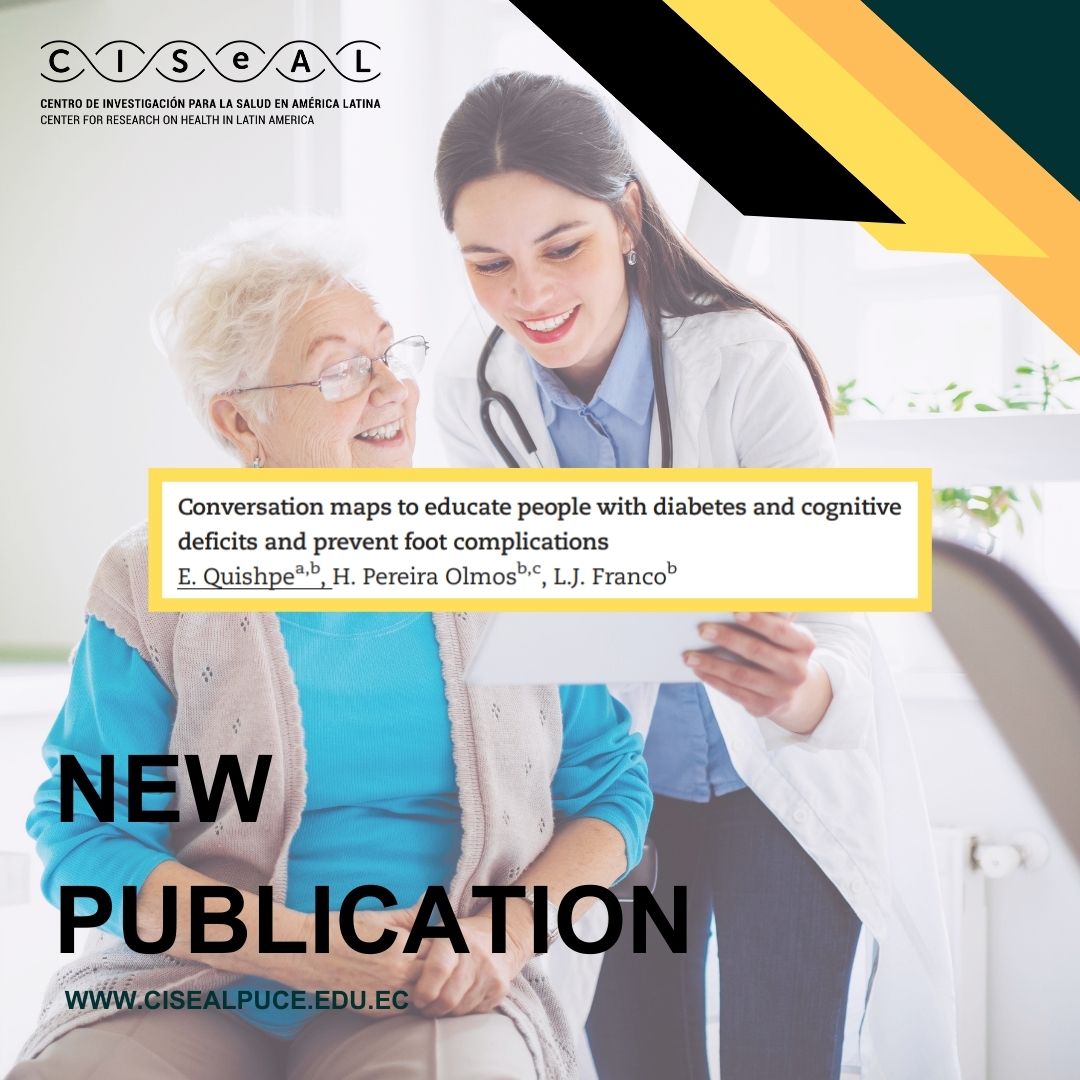 This study involved our CISeAL researchers, Hugo Pereira and Erika Quishpe, who played a key role in the design and implementation of the research methodology.
This study involved our CISeAL researchers, Hugo Pereira and Erika Quishpe, who played a key role in the design and implementation of the research methodology.
Comprehensive care for people with chronic illnesses such as diabetes includes self-care training to recognize warning signs. People with diabetes and cognitive deficits may find it difficult to care for themselves, so different educational strategies may prove useful, particularly in small towns. The aim of this study was to evaluate learning about diabetes and associated foot care using conversation cards in people with diabetes and cognitive deficits.
A quasi-experimental study was conducted before and after three years, approved by the research ethics board. Participants, people with type 2 diabetes and cognitive deficits, were randomly selected from a list of health centers and trained in small groups. The educational sessions were divided into two parts: the first dealt with diabetes and diabetes care, while the second focused on foot care. Conversation cards were accompanied by question cards and theme cards. A survey of knowledge, attitudes and practices was conducted before and after the educational intervention to assess learning.
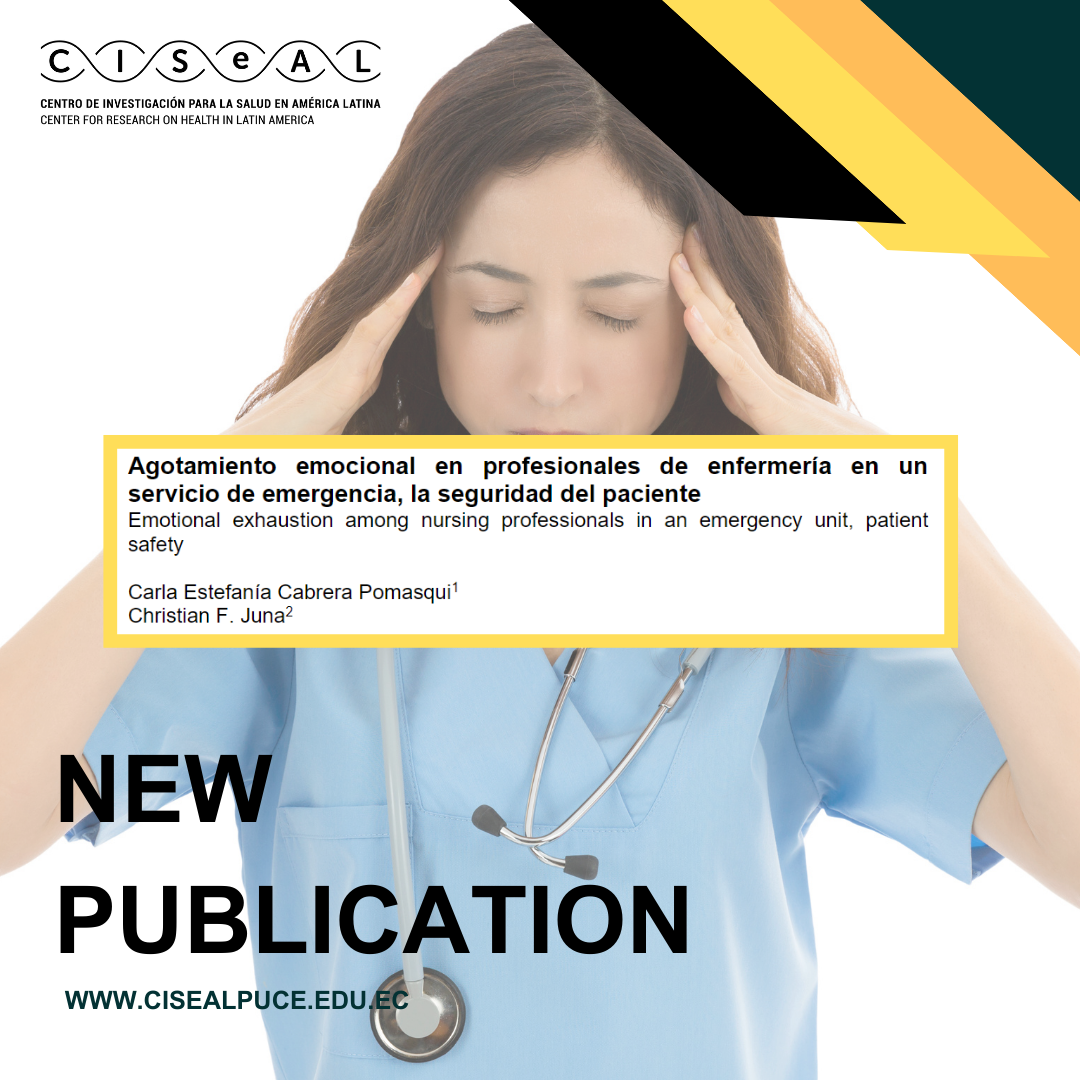
In healthcare, the well-being of professionals is not only crucial to their own quality of life, it also has a direct impact on patient safety and satisfaction. In a recent study, our CISeAL Research Associate Christian F. Juna looks at the challenges faced by nurses in emergency situations, highlighting the intrinsic relationship between emotional exhaustion and the quality of care delivered.This comprehensive analysis reveals how the work environment, the emotional and physical demands of the profession, and the management of interactions with patients and their families can lead to emotional exhaustion. This condition not only harms nurses' health, but can also affect patient safety, by increasing the risk of errors, lowering the quality of care and negatively affecting the nurse-patient relationship.
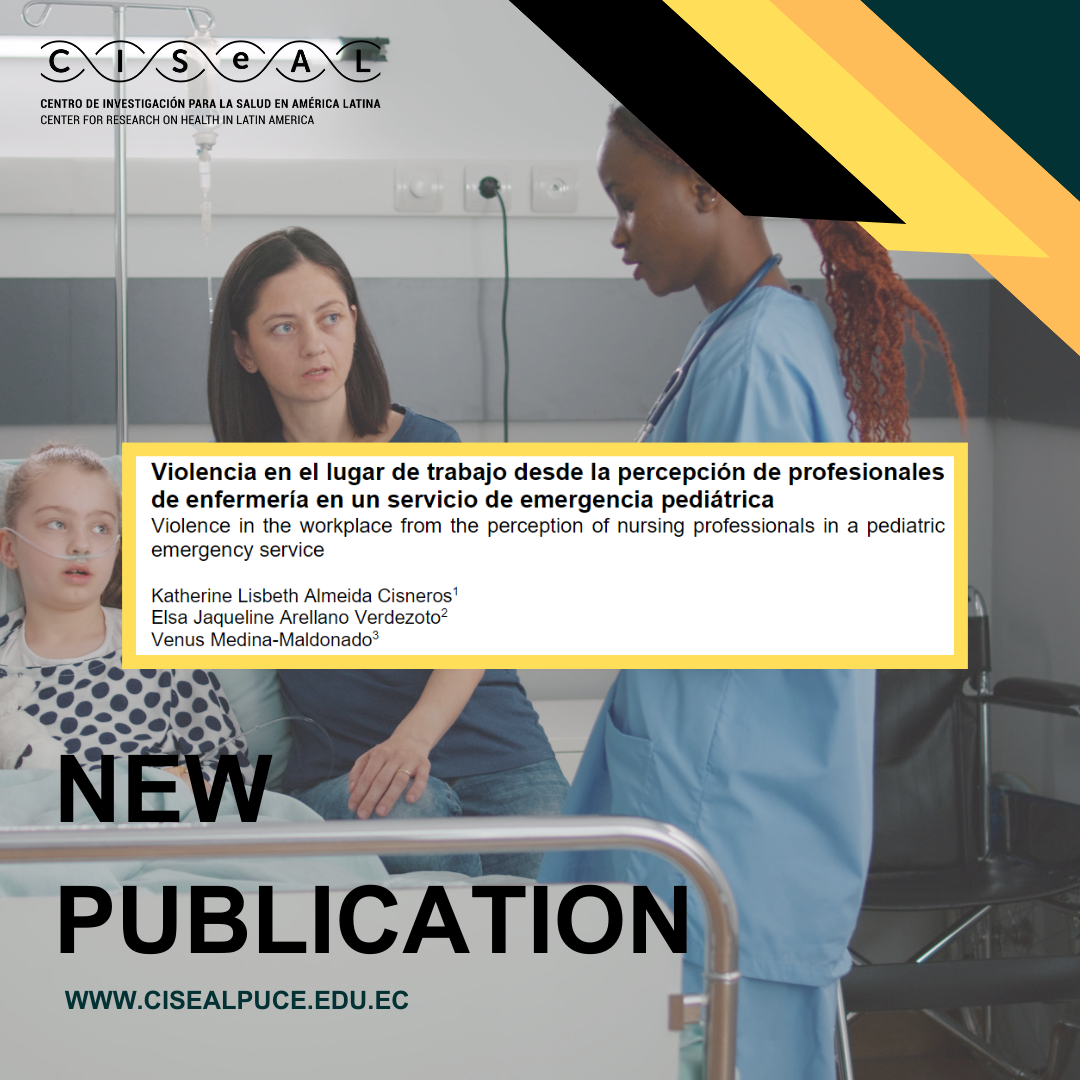
Workplace violence is a global problem in the healthcare sector, with nurses and healthcare professionals most at risk. Join our CISeAL researchers Jaqueline Arellano Verdezoto Elsa and Venus Medina-Maldonado, and PhD student Katherine Lisbeth Almeida Cisneros, as they explore this issue from the perspective of nursing professionals in a pediatric emergency department.
Healthcare professionals are at increased risk of physical, sexual or psychological injury due to workplace violence in their role as healthcare providers to pediatric patients in emergency departments. Incidents in which the professional is abused, threatened or assaulted in work-related circumstances involve an explicit or implicit challenge to their safety, well-being or health.
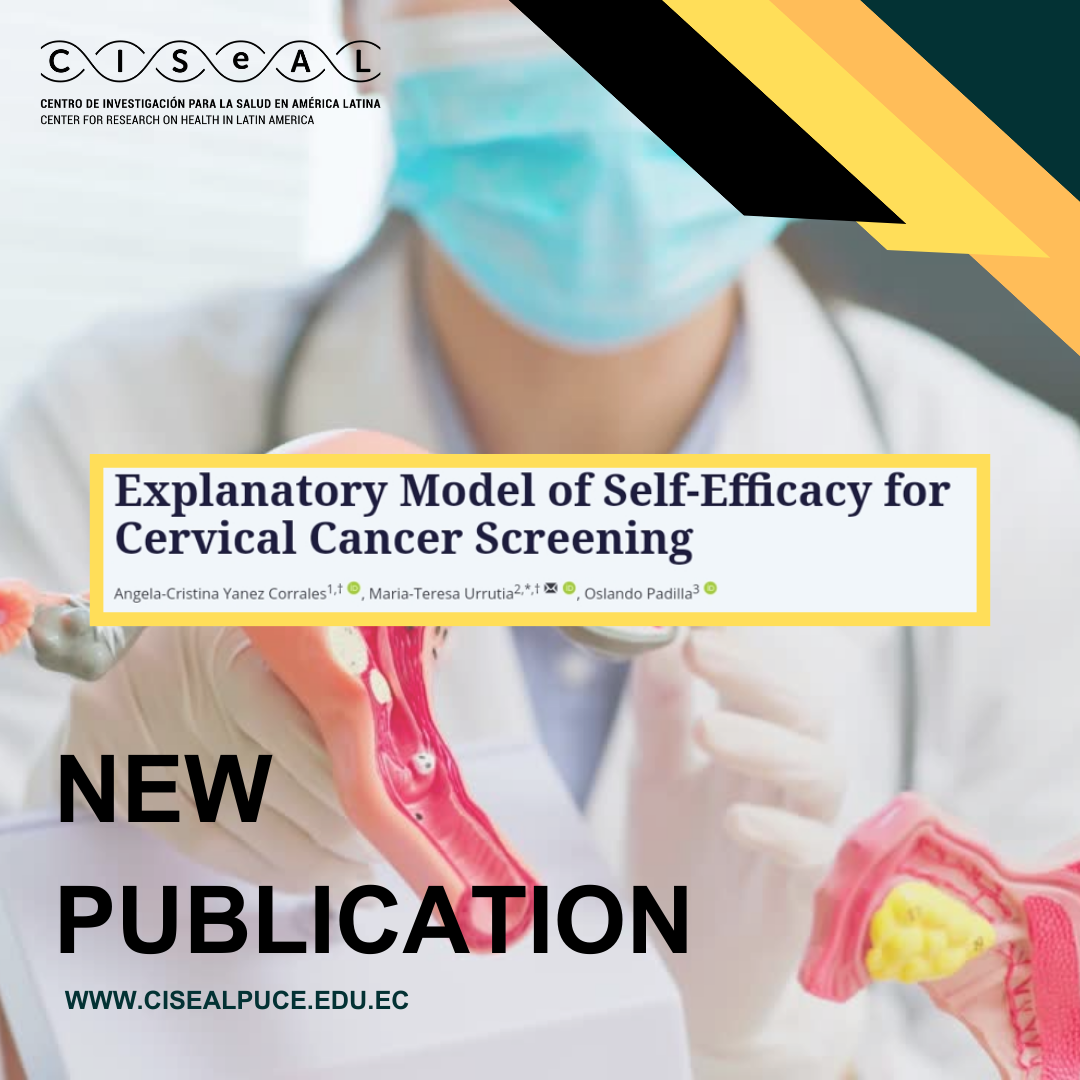
Cervical cancer (CC) screening is a public health concern, and social conditions partially explain the individual’s ability to respond to the preventive aspect of the disease. This study aims to design an explanatory model of self-efficacy (SE) for CC screening.
This study was conducted on 969 women aged 25–64 years who used the public health care system in Santiago, Chile. Multiple linear regression analysis was conducted to generate the explanatory model for global SE index and for each of their components as function of sociodemographic factors, factors related to interaction with the health system, risk factors for CC, family functioning, and the knowledge and beliefs of women regarding the disease and its prevention.
The factors that explain high levels of SE are low levels of education and knowledge of the risk factors of CC, better beliefs about the barriers to and benefits of a Papanicolaou (Pap) test, participation in breast cancer screening, and highly functional family Apgar.

The aim of this research was to assess prostate cancer mortality rates in Latin American and Caribbean (LAC) countries and to predict their mortality up to 2030. Data were obtained from the World Health Organization Mortality Database, and age-standardized mortality rates (ASMRs) for prostate cancer per 100,000 men between 1997 and 2017 were estimated for most LAC countries. Annual percentage change was calculated by country and age group. Nordpred was used to project prostate cancer mortality to 2030. Between 1997 and 2017, the countries with the highest prostate cancer mortality rates were Trinidad & Tobago, Cuba and Venezuela. For all ages, ten Latin American and Caribbean countries recorded significant decreases of between -0.5% and -2.8%, while Brazil, Cuba, Guatemala and Venezuela registered increases. Global prostate cancer mortality will increase by 2030 due to changes in population structure and size.
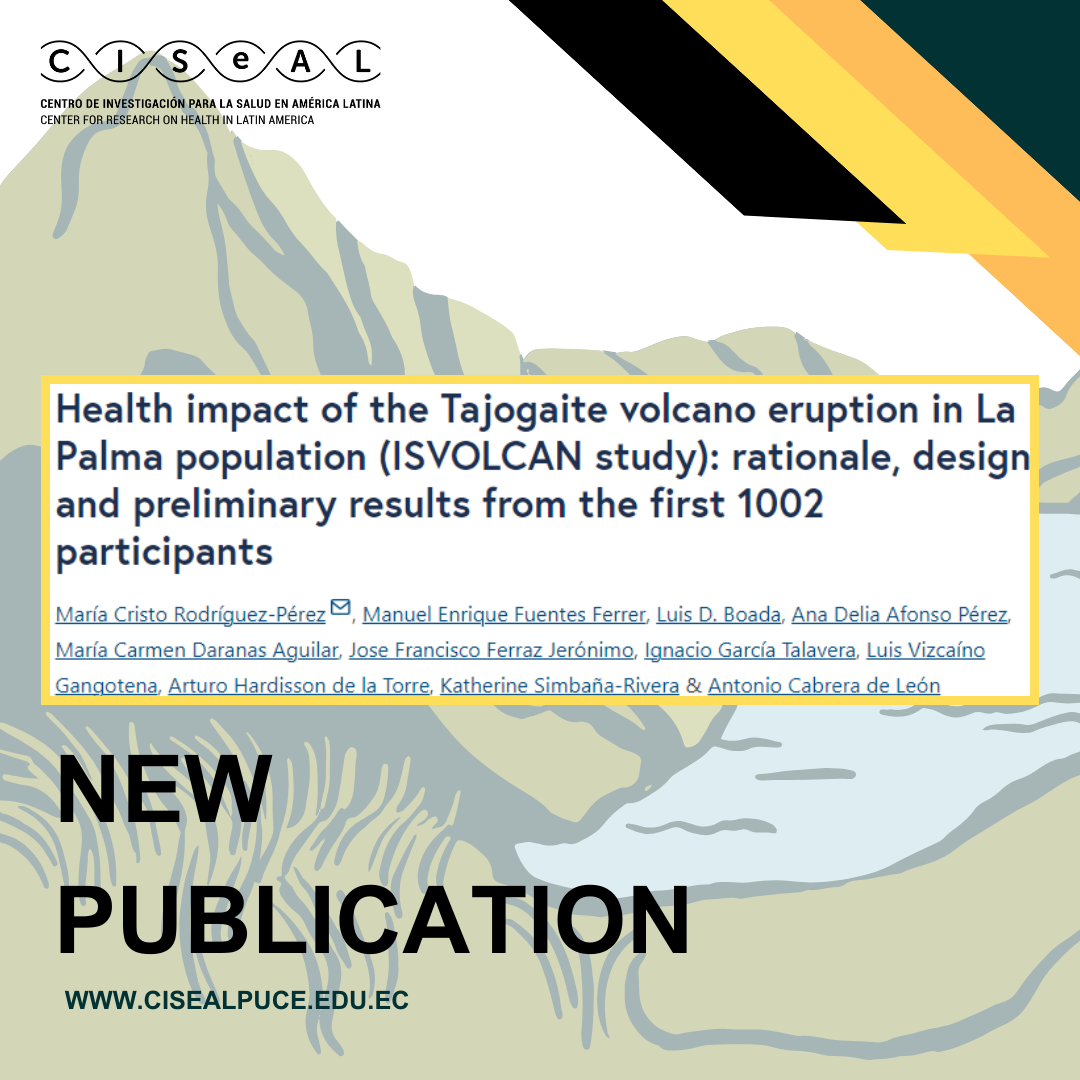
The eruption of the Tajogaite volcano began on the island of La Palma on September 19, 2021 and lasted 85 days. This study aims to present the design and methodology of the ISVOLCAN cohort (Impacto en la Salud de la Población de La Palma debido a la Erupción Volcánica), as well as preliminary results from the first 1002 participants enrolled. In the midst of tumultuous events, this comprehensive study was launched to investigate the profound impacts of this volcanic event on the health and well-being of the local population. This study aims to elucidate the complex relationship between volcanic activity and public health, shedding light on its design, methodology and initial results. In this article, we present an overview of the study framework and outline the initial results obtained from the participation of the first 1002 people.
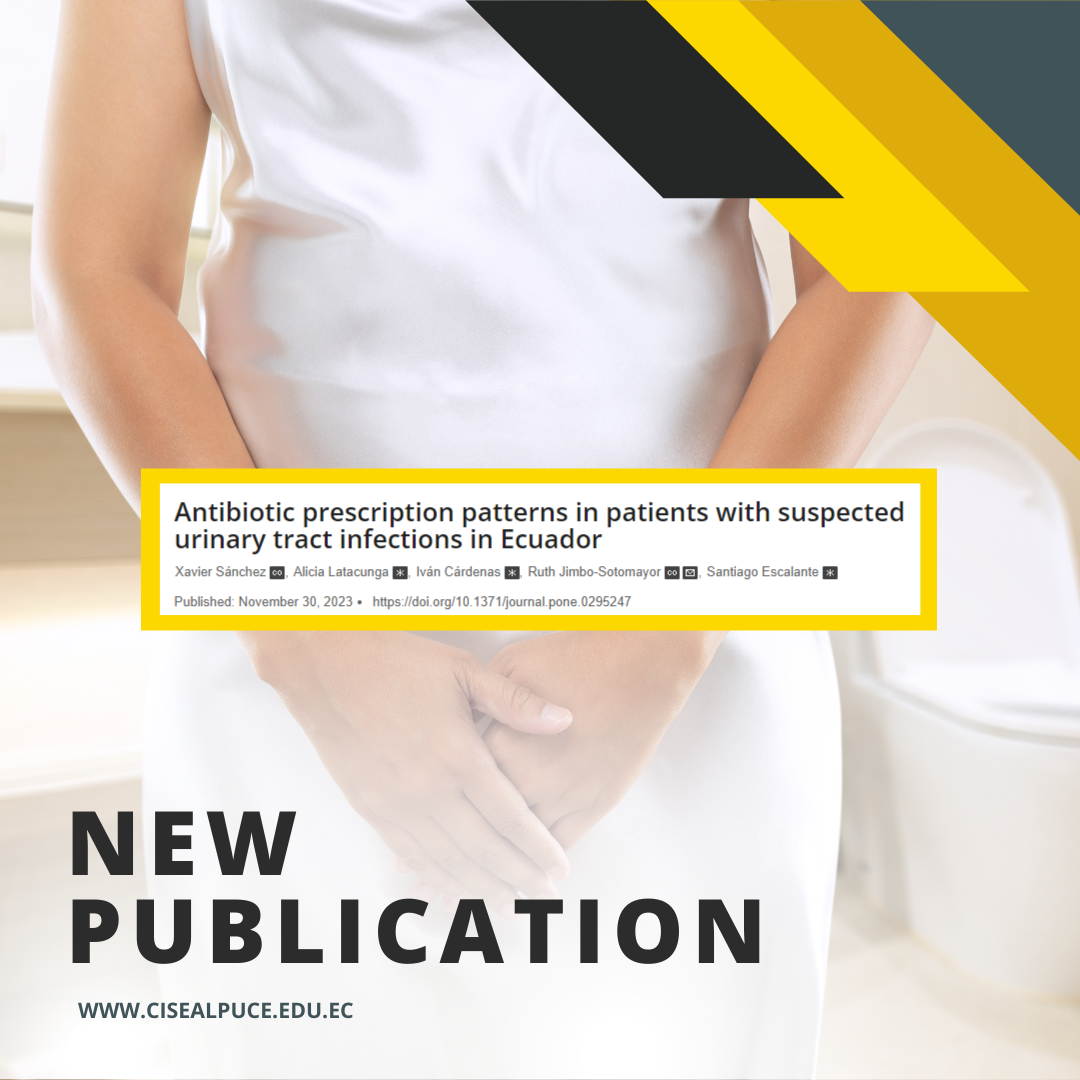
Urinary tract infections (UTIs) are one of the most common reasons for prescribing antibiotics in primary care. Diagnosis is based on clinical symptoms and laboratory test results. Although antibiotic therapy is the primary strategy, some studies suggest that treatment may not be optimal, leading to therapeutic failures and bacterial resistance. In the study by Dr. Xavier Sánchez, Dr. Ruth Jimbo-Sotomayor, and Mr. Santiago Escalante, antibiotic prescription patterns in adult patients with suspected UTIs were analyzed, and the appropriateness of these prescriptions was evaluated. A cross-sectional study was conducted in outpatient centers and a second-level hospital of the Ministry of Public Health in a city in Ecuador during 2019. The International Classification of Diseases was used.



